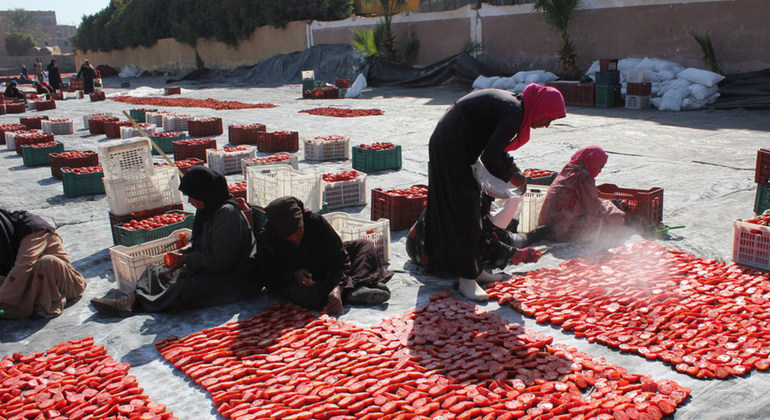It is important to make “global commitments local realities,” José Graziano da Silva, Director-General of the Food and Agriculture Organization (FAO), told the meeting and UN Headquarters, discussing common challenges to the Sustainable Development Goals (SDGs), such as climate change and food security.
The special event, From Global Issues to Local Priorities was co-hosted by María Fernanda Espinosa Garcés, President of the UN General Assembly, alongside Mr. Graziano da Silva.
About 68 per cent of the world’s population is expected to live in urban areas by 2050 – mostly in Africa and Southeast Asia, where hunger and poverty are highest.
He said that it is essential to engage local authorities to achieve SDG 11 –promoting sustainable cities and communities – fundamental for achieving all the other goals.
Focusing on SDG 2, which calls for the eradication of hunger and all forms of malnutrition, as well as the development of sustainable agriculture, he pointed out that the number of people suffering from both hunger and obesity has increased over the last three years, especially in urban areas where “people are more likely to eat cheaper processed food high in trans fats, sugar and salt.”
“We urgently need to transform our food systems,” he underscored. “We need to put in place food systems that offer healthy and nutritious food for everyone, while preserving our natural resources and biodiversity” by integrating actions “from the production to the consumption of food.”
City dwellers can no longer be considered food consumers and rural communities food producers.
“Sustainable development calls for the strengthening of rural-urban linkages based on a territorial approach,” he said, pushing for “a rural-urban continuum.”
Turning to the New Urban Agenda, which was adopted at Habitat III in 2016 during the Quito Conference, Mr. Graziano da Silva said the FAO Framework for the Urban Food Agenda would be launched in Rome on 7 March.
Sustainable development requires “a systems thinking, rather than granular responses,” he argued, adding that the Framework presents ideas to generate employment, strengthen local food value chains and reduce the high levels of food waste found in many cities.
Indicating that some 80 per cent of all food produced globally is now consumed in urban areas, he said that urban consumers would be “a very effective entry point in promoting the transformation to more sustainable agricultural production and value chain development.”
“Implementing the food systems approach may be challenging”, he concluded, “but it is fundamental to ensure healthy and nutritious food for all while safeguarding the planet for future generations.”
Also speaking at the meeting was UN Habitat Executive Director Maimunah Mohd Sharif, who delivered her remarks through video message.
A host of mayors, former mayors, economists and urban development experts shared experiences of effective local practices, innovative strategies and lessons learned in addressing global challenges including climate change, food insecurity and malnutrition, food supply and consumption sustainability, and people’s wellbeing from a sustainable and resilient food system perspective.




